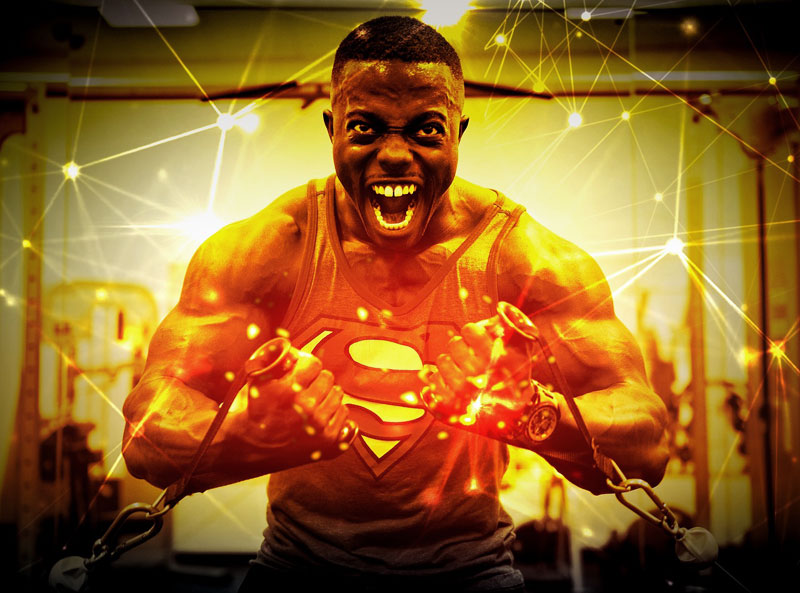 The involuntary and tensing of a muscle, most frequently in the thighs, calves, feet, hands, and arms, is referred to as a muscle spasm, also known as a charley horse or muscle cramp. They can also develop in the rib cage or the abdomen. Usually painless, muscle spasms can prevent you from using the affected muscle for a brief period of time.
The involuntary and tensing of a muscle, most frequently in the thighs, calves, feet, hands, and arms, is referred to as a muscle spasm, also known as a charley horse or muscle cramp. They can also develop in the rib cage or the abdomen. Usually painless, muscle spasms can prevent you from using the affected muscle for a brief period of time.
Muscle spasms can be prevented and treated, but those measures aren’t always effective. Stretching, massage and muscle relaxants are most likely to be helpful.
What Are Muscle Spasms?
Muscle spasms are involuntary muscle contractions that often result from a variety of causes, including overuse, injury, stress, and overtraining. They can have various causes, such as tightness in the muscles or nerves that control them, tension in the ligaments that connect them, or strain due to long-term exercise.
All muscle spasms are not created equal. In fact, they can be severe and debilitating. In some cases, muscle spasms or muscle cramps are nothing more than regular muscle contractions that occur during normal voluntary movement. however, other muscle spasms may be severe and hurt you deep inside your body.
Muscle Spasms Symptoms
Any of the symptoms of muscle spasms can be a sign of cramps. Here are some of the more common ones you may notice: Tightness in the muscles is frequently accompanied by an arch in the back or a twisting movement of the body. This is the most common sign that you’re under some form of stress.
However, it can also be a sign of overtraining. You may experience spasms when you’re really, really tired or have done a particularly strong or heavy or strenuous movement involving the affected muscle. A muscle cramp can provide modest discomfort with associated stiffness or sudden, tight, and acute agony.
This discomfort may impair muscular function. When a spasm occurs, there may be visible muscular knots or twitching of the afflicted muscle, and the muscle may feel rigid to the touch.
Muscle Cramps Causes
Muscle spasms or muscle cramps are the results of various reasons. It could be just too much of physical activity such as exercise or hard work when the body is new to the activity. Overtiredness, inadequate rest, muscle fatigue, dehydration, stress restriction in blood supply, and so forth are some of the common causes.
One way to prevent muscle cramps athletes and sportspersons is to stretch properly, keep the body hydrated, follow proper exercise form, and take an adequate diet. Muscle cramps may also be the result of an underlying medical condition, which should be duly checked by a medical professional.
Muscle Spasms Treatment
In most cases, muscle spasms do not require treatment and they disappear on their own. However, there are a couple of steps you take to minimize any discomfort. Stop any exercise or strenuous activity that is the cause of the cramps. Slowly stretch the muscle, and slow movements to allow the muscle to breathe.
You can also use over-the-counter muscle relaxant creams, and apply a heat pack for added benefit. Apply heat pack for 10-15 minutes, twice a day for optimal results. Besides this, keep the body hydrated, eat proper food, and use a painkiller in case of acute pain.
Massaging the area gently also allows the muscle to relax and lose its tightness fast. You can use a handheld massager at the soft setting for this, or use a foam roller to help the muscles relax after a heavy exercise. If the pain persists or is too much to bear, consult a doctor.
Horse Balsam For Muscle Cramps
Horse Balsam is a very effective gel for muscular pain relief, and aids in the fast relaxation of muscles. This is achieved with the special horse chestnut extract known for muscle repair and relief since the middle ages in Europe. Horse balsam gel is a very safe, gentle, and nonstaining gel, that reduces pain, discomfort, swelling, and aids in faster recovery. It is safe to use a couple of times a day on the affected muscles.
Conclusion
Muscle spasms are common and are generally very easy to treat. These go on their own, but you can take precautions and simple steps to help treat them. Muscle pain cream, massage, and heat packs to aid in faster recovery and reduce discomfort and pain. Visit a doctor if pain and discomfort persist for more than a couple of days, or is too much to bear.

